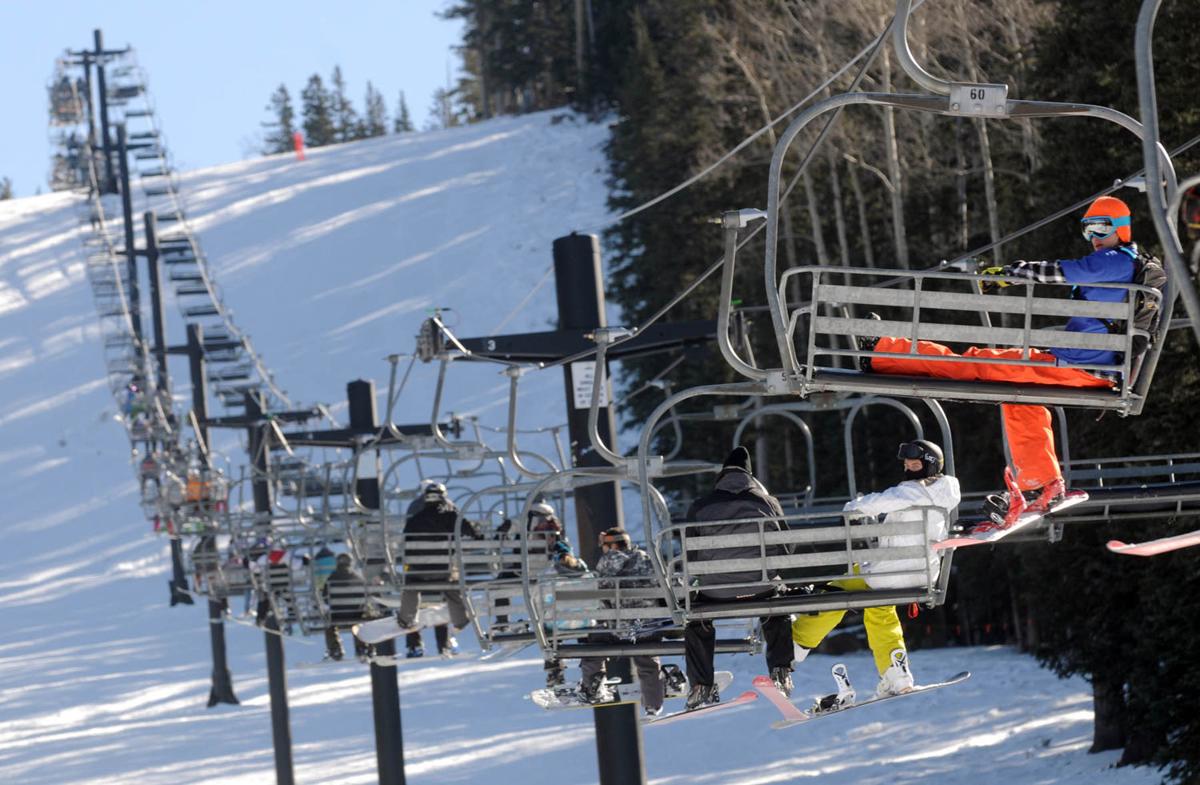PHOENIX — The Arizona Supreme Court has squashed what could be the last legal maneuver to block the use of treated effluent by the Snowbowl ski resort to make snow on the San Francisco Peaks.
In a 5-2 ruling Thursday, the majority concluded the Hopi Tribe has no right to file a claim the practice creates a “special nuisance” because it interferes with the ability of tribal members to practice their sacred rituals on the mountains north of Flagstaff.
The majority said the effect of claimed environmental damages on tribal members is no greater than those suffered by other members of the general public who use the land. And the justices said only those with a specific interest in the land, whether by virtue of ownership or financial impact, are entitled to bring such “special nuisance” claims under Arizona law.
The ruling drew a stinging dissent from Justice Scott Bales, who chided his colleagues for failing to understand what he said is the special nature of the harm the tribe is alleging.
Bales, joined by Justice Clint Bolick, said long before there was Snowbowl — and long before the public was concerned about the Coconino National Forest — tribal members were going to what they considered sacred peaks to conduct sacred rituals. All that, he said, would be changed if treated effluent, which is unfit for human consumption and retains some contaminants, is used by the resort on the land.
“In the spring melt, sacred springs will be tainted with the melting wastewater, turning formerly pure ceremonial locations into a secondary sewer,” Bales wrote.
“Moreover, the myriad chemicals in the water will wreak unknown damage on the local ecosystem, further degrading traditional and sacred Hopi resources and locations,” he continued. “In sum, the Hopi face the destruction and desecration of some of their most sacred locations and places.”
But Justice John Pelander, writing for himself and the four other justices, said allowing the Hopi to block the use of treated effluent based solely on a claim of religious interference would effectively empower the tribe to veto decisions made by public officials who, after hearing testimony and considering evidence, decided that the practice would be in the public interest.
Tribal Chairman Tim Nuvangyaoma said he was disappointed in the ruling.
“This has been a long-fought battle, in many different forms, and through it all we had hoped that justice would be done,” he said in a prepared statement. “Unfortunately, we did not prevail.”
Thursday’s ruling appears to be the last gasp in a fight that dates back decades, first in an unsuccessful bid to try to block the ski operation on public lands. When that failed, the Hopi along with other tribes went to federal court, making various environmental and religious freedom law claims to preclude Snowbowl from using treated effluent purchased from Flagstaff to make snow.





